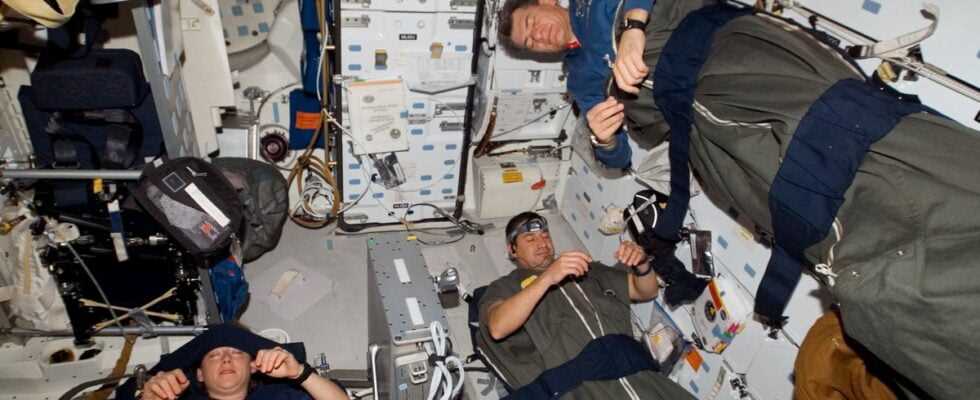The European Space Agency (ESA) is considering the possibility of hibernating crews en route to Mars on future space travel. Artificial Intelligence would play a major role in this life support system.
Could astronauts hibernate for several weeks, like bears? It is in any case an idea considered by the ESA. The European Space Agency has just published a study on the subject on ScienceDirect, a scientific platform.
Mars: a journey with serious consequences
In anticipation of a scientific expedition to Mars, ESA has analyzed the ins and outs of such a trip. Currently, a mission to the Red Planet could take between 220 and 254 days. A very long period that would put a strain on the humans participating in the mission. The agency refers to “extreme physical and mental stress“. Indeed, in space, women and men will be confronted with “solar irradiation, [aux] effects of microgravity and […] of the solar environment, [aux] effects of microgravity on organs, [au] deconditioning, as well [qu’à] various psycho-physiological challenges“, underlines the study.
To overcome several of these constraints, scientists imagine an innovative device in which humans could hibernate like bears. As noted by our colleagues from Futura Sciences, ESA plans to produce fairly flexible nacelles where crew members bound for Mars could hibernate. In what environment? High humidity, low temperature. The astronauts would be protected by a layer of water which would act as a barrier against radiation.
The crew would be plunged into hibernation. This technique used by bears in winter would slow down human metabolism and reduce physiological needs (eating, drinking, breathing). This state “artificially induced“, as described by the researchers, would be applied continuously or alternately. Overwintering would allow “greatly reduce the amount of supplies needed and the size of the habitat“Concretely, the amounts of oxygen, water and food needed would be less in this state. Likewise, the side effects of microgravity and radiation would be considerably reduced, as would the “behavioral effects“related to loneliness.
In this extraordinary vessel, an artificial intelligence could be developed to make the system autonomous. She would manage the astronauts by constantly monitoring their vital parameters, and would even be able to deal with emergency situations. A complete man-machine collaboration that would greatly facilitate space travel, especially to Mars.
